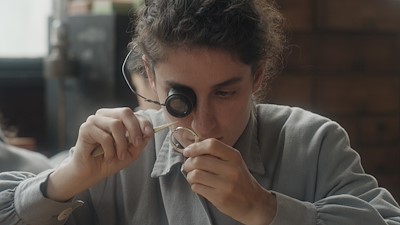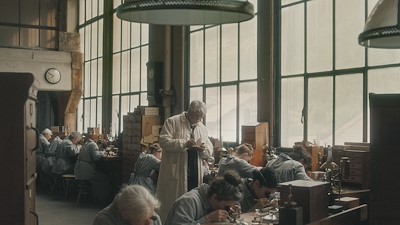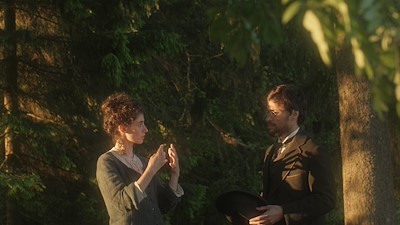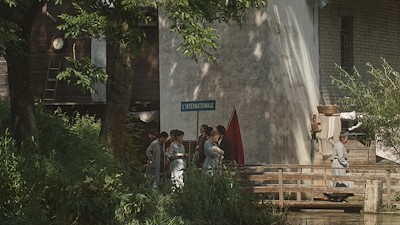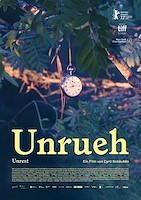Unrueh
Cyril Schäublin, Switzerland, 2022o
In 1877, in a watch factory in a valley in north-western Switzerland, Josephine produces balance spindles, tiny parts that ensure the agitation movement ("unrueh") of the mechanical watches. She soon grows uneasy with the organisation of work and possession in the village and its factory and joins the anarchist worker movement of the local watchmakers. There she meets Piotr Kropotkin, a moony Russian traveller.
With Dene, wos guet geit, Zurich director Cyril Schäublin delivered a strong showcase of talent in 2017; with Unrueh he presents his first masterpiece. Once again, the now 38-year-old relies on his very own visual language of recesses and distance from the action; more clearly than before, he weaves a narrative thread into his play with perspectives and snippets of conversation floating in space. The heroes of the film are the male and female workers of the Jura watch industry in the late 19th century, who experience the triumph of second-precision timekeeping first-hand and at the same time are inspired by the grassroots democratic form of socialism known at the time as anarchism: in exchange with activists halfway around the world, they debate ideas such as collectivist economics and the decentralisation of power, but also pursue their professional passion and cautiously explore amorous realms. Opponents of allegedly artsy cinema can relax: Schäublin and his crew wrap their rehabilitation of anarchist thought in a cocoon of scenic ideas. With sovereign casualness, they also link the cinematic musings on the good life with a homage to the fine art of Swiss watchmaking.
Andreas FurlerGalleryo
